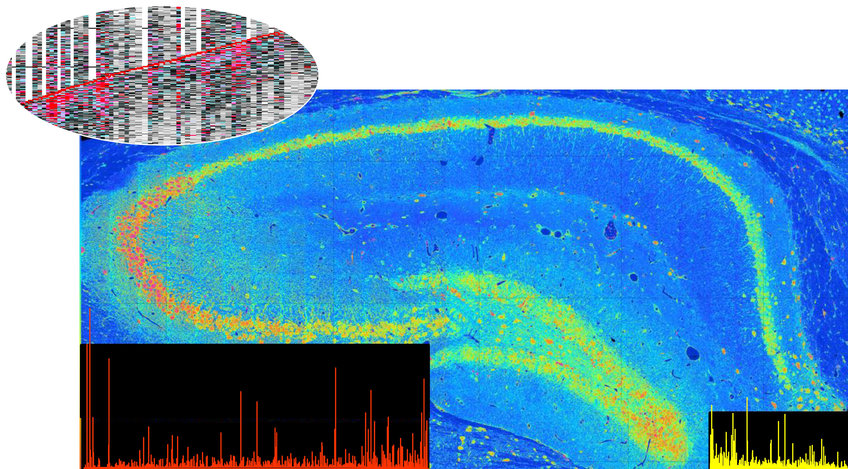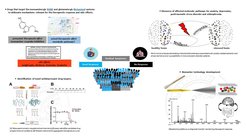
Proteomik und Biomarker
Current interests are focused on:
Discovery of affected molecular pathways in mouse models that represent defined endophenotypes characteristic for human psychiatric disorders including anxiety, posttraumatic stress disorder and schizophrenia.
Drugs that target the monoaminergic (SSRI) and glutamatergic (Ketamine) systems studied in mice with the goal to delineate mechanisms relevant for the therapeutic response and novel drug targets.
Clinical translation with the help of psychiatric patient specimens collected in our hospital.

Ketamine. The fast acting antidepressant Ketamine is an NMDA receptor antagonist, but the precise mechanism of action remains unclear. There is new evidence that a Ketamine metabolite, hydroxynorketamine (HNK), may be responsible for the antidepressant activity. We are analyzing brain tissue sections and plasma of Ketamine- and HNK-treated mice by proteomics and metabolomics to delineate affected molecular pathway details.
Fluoxetine. The SSRI Fluoxetine is the only psychopharmacological agent approved for depression by the U.S. Food and Drug Administration for children and is commonly used therapeutically in a variety of neurodevelopmental disorders. Therapeutic response shows high individual variability, and severe side effects including suicidal ideation have been observed. We are –omics profiling tissue punches representing specific brain regions to identify molecular pathways affected by the drug.
New antidepressant drug targets. Novel SSRI and Ketamine/HNK target proteins are identified with the mass spectrometry coupled-cellular thermal shift assay (MS-CETSA) method that is based on the thermal stabilization of proteins when bound to small molecules. This allows the identification of drug-specific targets, including targets that may be closer to the therapeutic mode of antidepressant action.
Metaproteomics. There is increasing evidence that microbiota composition and microbial-derived molecules impact human health through signaling to distant organs including the CNS where they can contribute to the development of psychiatric disorders. The identification of fecal proteome and metabolome alterations as a proxy for a dysfunctional gut-brain-axis may contribute to our understanding of the neurobiological basis of stress-related disorders.
